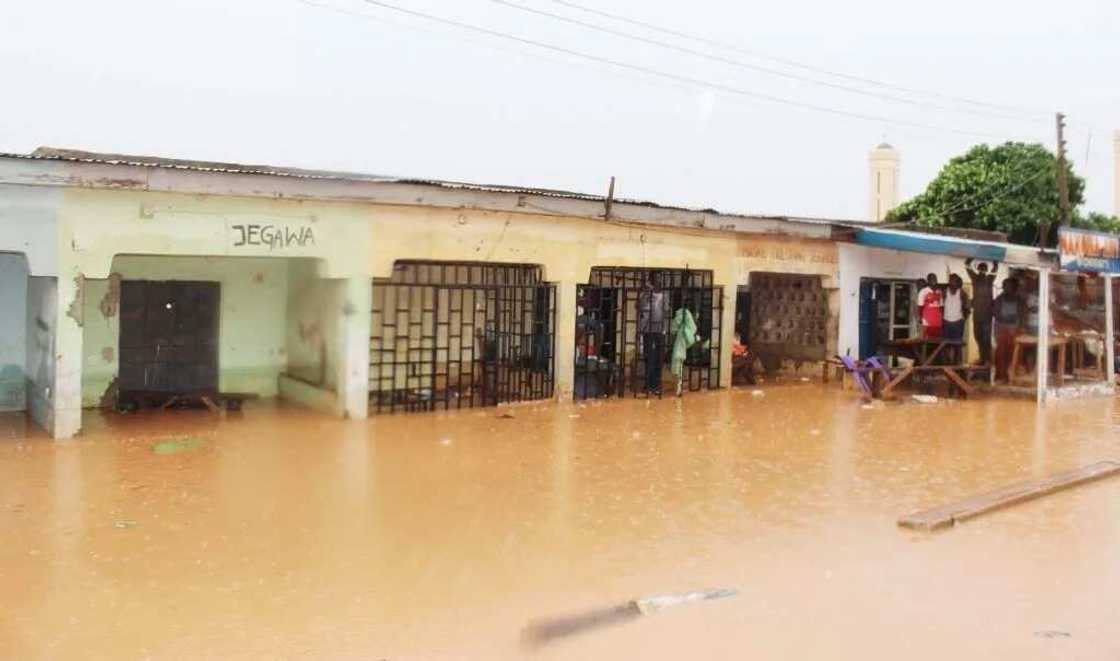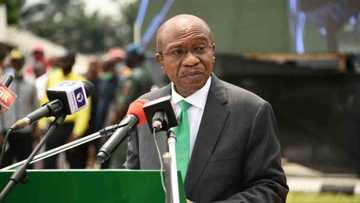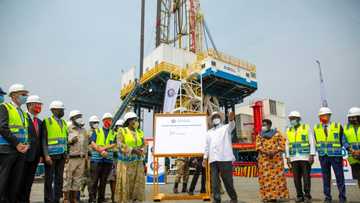FG Says Flood Caused N4.2tn Economic Loss to Nigerian Economy in 2022
- The Federal government of Nigeria has revealed that the Nigerian economy suffered losses in 2022 due to flood
- The heavy downpour during the year FG said whipped off a whopping N4.2 trillion from the economy
- Data from NBS showed that food inflation in Nigeria increase in 2022 as a result of the heavy floods in some states
PAY ATTENTION: See you at Legit.ng Media Literacy Webinar! Register for free now!
The Federal Ministry of Humanitarian Affairs, Disaster Management, and Social Development has revealed that the Nigerian economy suffered an estimated economic loss of $9.12bn (N4.2tn as at an official exchange rate of N460.78/$) due to floods.
Sadiya Farouq, the humanitarian minister made the revelation during the presentation of the Global Rapid Damage Estimation Note in Abuja, Punch reports.
GRADE which was developed by the World Bank’s Disaster-Resilience Analytics and Solutions team to assess the economic impact of the June – November 2022 floods across the country.

According to her, the GRADE assessment provided an overview of the nature of the flood catastrophe and its impact across Nigeria, as well as sectoral and state-by-state consequences that are crucial for planning.
PAY ATTENTION: Сheck out news that is picked exactly for YOU ➡️ find the “Recommended for you” block on the home page and enjoy!
Regarding some of the key findings of the flood assessment, the report noted that the 2022 flood in Nigeria hit all 36 states and the Federal Capital Territory, with various degrees of damage and populations affected.
It read in part:
“This analysis estimates that the total direct economic damages, based on currently reported statistics as of November 25, 2022, are in the range of $3.79bn to $9.12bn, with the best (median) estimate at $6.68bn.
“This includes damages to residential and non-residential buildings (including building contents), as well as damages to infrastructure, productive sectors and to cropland.”

Read also
CBN gives a detailed breakdown of N4trn spent on various intervention programmes in different sectors
Farouq also explained that the number of persons affected rose above 4.9 million as of November 25, 2022, with significant damage to infrastructure, including roads, irrigation and river, as well as electricity projects, with around $1.23bn ($0.959 – $1.724bn) in damage expected.
Farouq also revealed that the GRADE Note was a fast first-order approximation of the economic impact, and provided a rapid high-level estimate of damages used to inform ongoing decisions in a timely fashion.
The minister stated.:
“It was developed using the empirical data defined in this document, calibrated against historical data and experience, including the 2012 Nigeria Floods (Post-Disaster Needs Assessment). The period of analysis is from June 2022 to November, 25, 2022."
Gov Emmanuel sympathizes with flood victims in Akwa Ibom, orders for remedial measures
Meanwhile the Akwa Ibom state governor, Udom Emmanuel sympathized with flood victims in the state and ordered the ministry of works, and other relevant agencies to put remedial measures to reduce flooding in affected areas of the state.
Governor Emmanuel gave the directive while embarking on the spot assessment of flood-affected areas in Uyo, the state capital.
He was accompanied by the secretary to the government, Emmanuel Ekuwem, head of civil service, Effiong Essien among other aides of his administration.
Source: Legit.ng




